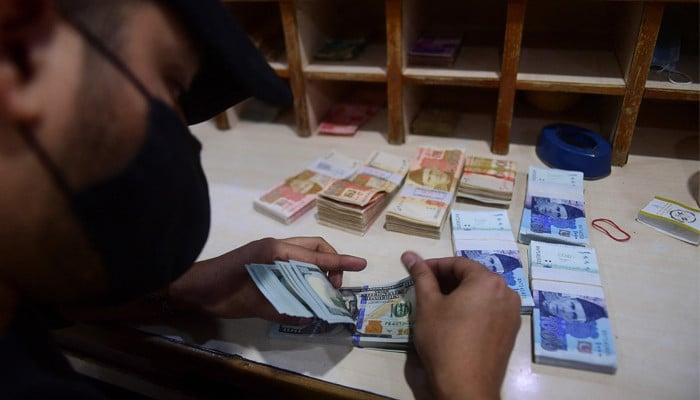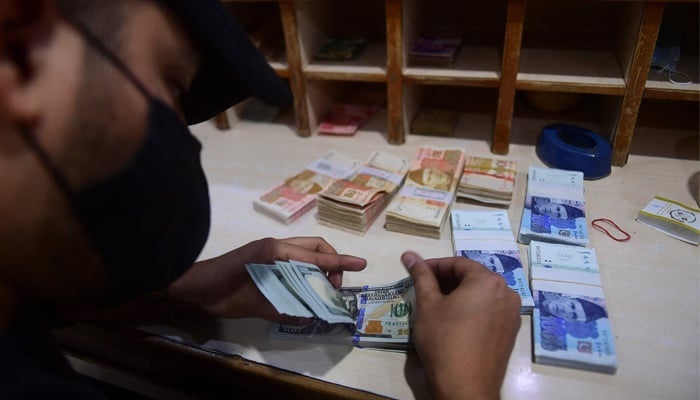Rupee plunges 5.38 against dollar to fresh low
As political uncertainty intensified across the country Wednesday following the arrest of Pakistan Tehreek-e-Insaf (PTI) Chairman Imran Khan, the exchange rate was also affected, with the rupee falling to a fresh low.
Data shared by the State Bank of Pakistan (SBP) showed that the rupee lost Rs5.38, or 1.89% to close at Rs290.22 per dollar in the interbank market.
The local currency had previously reached a record low of Rs288.42 per dollar on April 11.
Analysts attributed the rupee’s fall to the increased political turmoil after Khan was taken into custody a day earlier on charges of involvement in the Al-Qadir Trust case.
Samiullah Tariq, head of research at Pakistan-Kuwait Investment Company, told Thenews.com.pk that uncertainty regarding the International Monetary Fund (IMF) programme and increasing political uncertainty impacted the exchange rate.
“The rupee-dollar parity doesn’t seem linked to the actual supply and demand of dollars,” the analyst maintained.
Head of Research at Arif Habib Limited Tahir Abbas shared that there was “pressure” on the rupee because of the “changing political situation”.
“It is expected that political instability will delay the IMF deal,” said Abbas, adding that the lender had also said two to three days ago that the staff-level agreement will be signed once Pakistan bridges its external financing gap.
“I think there is pressure on the rupee after the event that happened yesterday and the IMF statement. Today the pressure is specifically due to political instability,” said Abbas.
A day earlier, Moody’s Investor Service warned that without an IMF programme, Pakistan could default as its financing options beyond June are “uncertain”.
“We consider that Pakistan will meet its external payments for the remainder of this fiscal year ending in June,” sovereign analyst with the ratings company in Singapore, Grace Lim, was quoted by Bloomberg.
“However, Pakistan’s financing options beyond June are highly uncertain. Without an IMF programme, Pakistan could default given its very weak reserves.”
Rising political tensions ahead of elections due this year are adding to the risk of a delay in the loan, as former prime minister Imran Khan is showing no signs of backing down against the government.
The coalition government is struggling to revive a $6.5 billion IMF bailout programme, which had stalled after the government failed to meet some loan conditions.
“An engagement with the IMF beyond June would support additional financing from other multilateral and bilateral partners, which could reduce default risk,” Lim, in an emailed response to questions, said.
It should be noted that Pakistan’s foreign-exchange reserves — which stand at $4.5 billion — remain extremely low and sufficient to cover only about one month of imports, she said.
For all the latest business News Click Here


